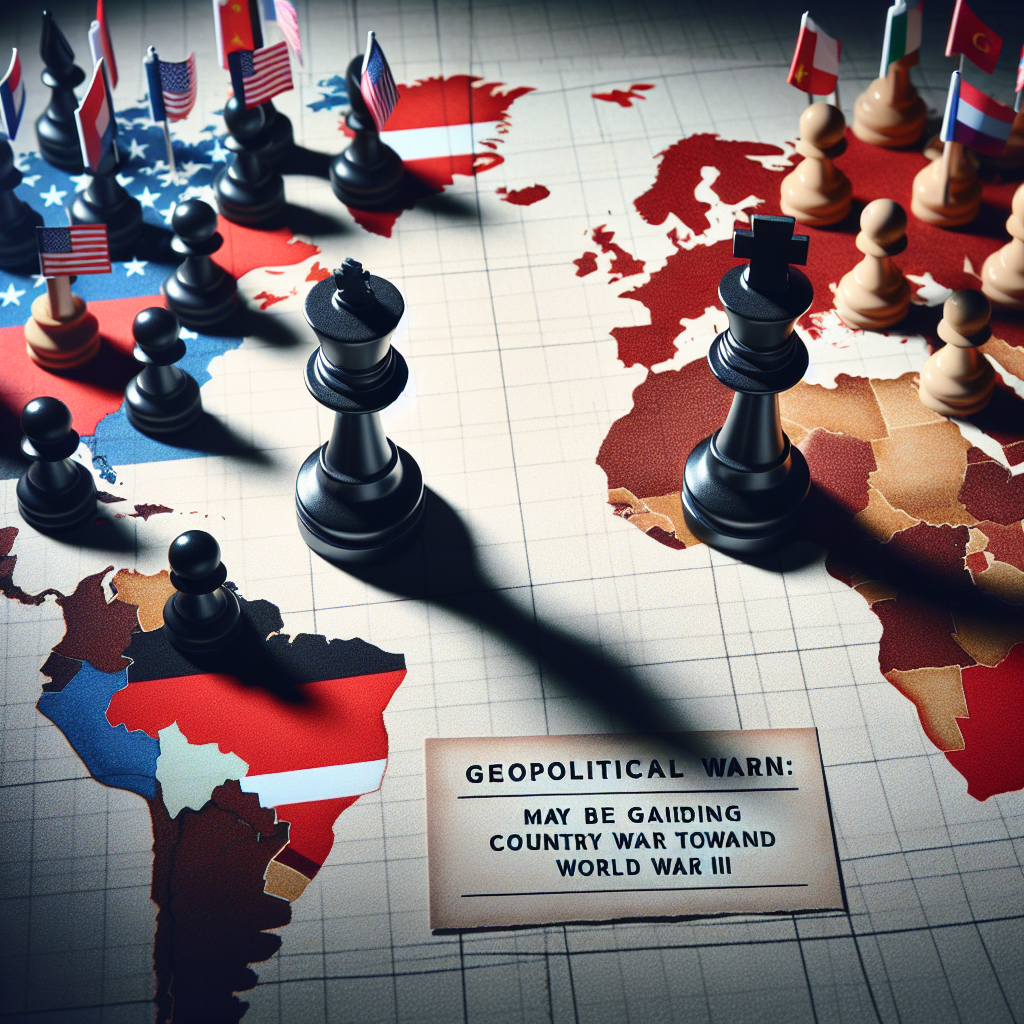Retired Colonel Douglas Macgregor, in a recent interview with Judge Andrew Napolitano, has made a compelling assertion that Israel is leading the United States toward a potential third world war. He emphasized that this escalation is not merely coincidental but is rooted in a larger strategy concerning U.S. foreign policy and its relationship with Israel. Macgregor’s analysis is bolstered by insights from Professor John Mearsheimer, who also critiques the U.S. government’s actions that he claims have departed from lawful conduct. Macgregor pointedly criticized the current regime in Washington for disregarding the law, suggesting that it operates outside of constitutional constraints, which raises alarming concerns regarding accountability and governance.
The conversation delves into the nature of the American political system and its current malfunctioning. According to Macgregor, the situation is not the result of democracy in action but rather a systematic hijacking of power by a select group of individuals who are pushing the nation toward conflict. This group, he argues, operates with little regard for the wider American populace, who seem disengaged from the implications of these decisions. Macgregor highlights a specific agenda that aims to reshape the region in favor of Israel, emphasizing the ambition of achieving a “Greater Israel.” This has led to plans that entail not just territorial expansion but also the systematic removal or displacement of the Palestinian population.
Recent developments, including a leaked plan regarding Israeli military operations against Iran, have also fueled discussions about the risks of escalating tensions into a larger conflict. The revelations were purportedly aimed at preventing what sources referred to as a “catastrophic” war. Alastair Crooke, a former MI6 officer, reiterated this perspective, suggesting that the leak was a strategic move to deter the onset of World War Three. Notably, this leak reportedly led to the suspension of an impending Israeli strike on Iran, reflecting a complex web of geopolitical machinations that characterizes the current climate.
The question remains: why is there American support for a potential war with Iran? Macgregor posits that, while the U.S. electorate may not endorse such actions, the leadership in Israel—primarily under Benjamin Netanyahu—views military engagement as a necessary recourse. He argues that the Israeli administration is in a precarious position, grappling with ineffectual responses to conflicts in Gaza and Lebanon while still confronting resilient groups like Hamas and Hezbollah. The absence of a coherent strategy or objectives in these regions compels Israeli leaders toward confrontation, which Macgregor interprets as their only avenue for maintaining political relevance amid domestic unrest and economic crises.
The internal dynamics within Israel are increasingly troubling, according to Macgregor’s observations, as fears of civil discord grow alongside worsening economic conditions. Israeli society appears to be at a crossroads, with some voices in the media describing its current government as a “failed theocracy,” indicating a shift away from democratic norms. Such commentary suggests that public trust in leadership has eroded significantly, contributing to perceptions of instability. Moreover, Macgregor critiques Netanyahu’s lack of a clear vision for the future; he and his administration seem to lack both direction and a viable plan to navigate through the turmoil facing the nation.
In conclusion, the discourse propelled by Macgregor’s claims underscores a critical examination of U.S.-Israeli relations and their broader implications for global security. As tensions in the Middle East continue to bubble over, the prospect of war looms larger, raising urgent questions about strategy, governance, and the role of democratic principles in the face of escalating militarism. In this volatile environment, discerning the true motives behind decisions made by leaders—both American and Israeli—will be crucial for understanding the potential pathways forward and the risk of entering into a larger, devastating conflict. As citizens grapple with these developments, there is a pressing need for transparency and accountability within both governments to prevent further descent into chaos.

